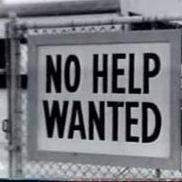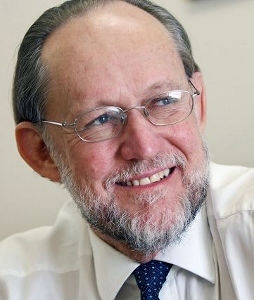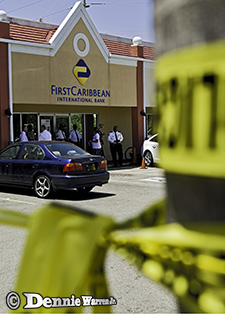Archive for May, 2012

‘Burn’ it like Beckham as flame heads for the UK
 (CNS): UK’s footballing hero David Beckham was one of a number of dignitaries escorting the Olympic flame from Athens to London Friday. When the flame lands in the UK this evening it will trigger a 70-day torch relay leading to the opening of the Games in London on 27 July. The former England soccer captain joined Princess Anne, the London Games chairman Seb Coe, London Mayor Boris Johnson, and Olympics minister Hugh Robertson on a golden-liveried Airbus – the 'Firefly' from the Greek capital. The flame was handed over to the London delegation at a ceremony in torrential rain at the Panathenaic Stadium in Athens.
(CNS): UK’s footballing hero David Beckham was one of a number of dignitaries escorting the Olympic flame from Athens to London Friday. When the flame lands in the UK this evening it will trigger a 70-day torch relay leading to the opening of the Games in London on 27 July. The former England soccer captain joined Princess Anne, the London Games chairman Seb Coe, London Mayor Boris Johnson, and Olympics minister Hugh Robertson on a golden-liveried Airbus – the 'Firefly' from the Greek capital. The flame was handed over to the London delegation at a ceremony in torrential rain at the Panathenaic Stadium in Athens.
"When the flame arrives and the torch relay starts to get under way, that is a physical moment in terms of the process towards the Games," the Princess, who formally received the flame at Thursday’s ceremony.
The plane will land RNAS Culdrose in Cornwall in south-west England, when at a special welcome ceremony Beckham will use the flame shielded in a miners lantern to light a golden torch and a cauldron. "To be travelling back with the flame tonight, and to be lighting it, is something very special. Something that I am going to cherish for many years," Beckham said.
Some 8,000 torchbearers will carry the Olympic flame through hill and dale across the UK. The bearers are mostly local people who have worked to better their communities.

Work initiative leads to jobs for 65%
(CNS): A year after they graduated sixty five per cent of the students from the third group of government’s youth training programme are in work and a further 30% of them are in school officials revealed. On their first year anniversary from the Passport2Success (P2S) programme this month the education and employment ministry said that five of those who are working have been with the same employer for past 12 months. Two are completing the ILEX – Legal Secretarial Course next month, two are working on associate degrees at UCCI; one is pursuing an associate degree at ICCI and another is attending school overseas.
The students have found work with a cross section of employers including LIME, Kirk Freeport, Cayman Islands Airport Authority, Water Authority (Cayman), Al La Kebab, DECCO and the North Sound Golf Club.
Minister for Education, Training extremely “proud and ecstatic at the achievements each” of them had made over the past year. “‘Keep working hard, keep moving forward and always strive for better,’ he told the group which is now part a growing pool of young people who have been assisted by the specialist programme designed to bring down the barriers face by young people seeking employment and then staying in it.
Shannon Seymour, programme coordinator at the Wellness Centre, said the graduates had come such a long way from the people they were when they started Passport2Success. “We at the Wellness Centre are truly proud of you and continue to wish you all the best as you continue along your journey.”
For more information regarding the P2S 12-week intensive programme as well as application forms, visit www.passport2success.ky.

Lawyers to work for free
 (CNS): If a proposed bill becomes legislation, all lawyers working in the Cayman Islands will be required to offer pro bono services to those in need of legal representation but who cannot afford an attorney, with an option of paying an annual fee instead. The draft Legal Aid and Pro Bono Legal Services Bill 2012, which deals with the contentious issue of how legal aid is funded and to ensure the public is given equal access to justice, has been released for public consultation. It proposes, for the first time, that all lawyers will be obligated to provide their services free of charge for 25 hours per year or make an annual contribution to the court of $2,500.
(CNS): If a proposed bill becomes legislation, all lawyers working in the Cayman Islands will be required to offer pro bono services to those in need of legal representation but who cannot afford an attorney, with an option of paying an annual fee instead. The draft Legal Aid and Pro Bono Legal Services Bill 2012, which deals with the contentious issue of how legal aid is funded and to ensure the public is given equal access to justice, has been released for public consultation. It proposes, for the first time, that all lawyers will be obligated to provide their services free of charge for 25 hours per year or make an annual contribution to the court of $2,500.
The bill also introduces a legal aid director to manage the funding of the defence scheme, as well as requiring the lawyers to be available for legal aid work and pro bono services.
With the legal aid budget hovering around $1.8 million per annum and a constant shortage of lawyers to take on the mounting number of criminal cases, government has been trying to find a solution to the problem of equality in justice.
The latest draft bill introduces a legal obligation, which will see the country’s more than 500 lawyers forced to contribute to public justice, either through their skills or financially, and no longer relies on the goodwill of a small number of attorneys who have been willing to take on pro bono work.
Although the profession and government had resisted legislating that lawyers work pro bono, this law now proposes to create a legal professional duty. Every attorney’s licence to practice in Cayman will be contingent on the demonstrated completion of their annual pro bono quota or payment of a fee which will be used to off-set legal aid costs. The only lawyers that the obligation will not apply to, if the legislation is passed, are those working for government.
Currently, there are only around a dozen lawyers who are regularly available for legal aid work. These are mostly criminal attorneys who are paid a flat rate of $135 per hour from the legal aid fund, which is currently administered by the courts. Several of these lawyers already do many hours of pro bono work on top of the legal aid hours for which they bill, but the pool of attorneys doing so remains extremely small given the number of qualified lawyers working in the Cayman Islands and the mounting number of serious criminal cases that these attorneys are dealing with. .
In this new draft bill it is proposed that all lawyers, regardless of their position, will now do some work for those in need of representation free of charge, alongside the criminal defence attorneys, who will continue to work for the legal aid system. There is also a provision for collective service for larger firms, whose attorneys can pool their pro bono hours.
It is proposed that the legal aid funding and management will be handled by an appointed director and support staff in the Deputy Governor’s Office.
According to the new bill, the director will establish a list and manage a roster of available attorneys for defence and introduce a duty counsel system for those remanded in custody at the police station and charged with a crime. It also sets out to cap the legal aid earnings of any individual attorney at $80,000 per year, except in certain circumstances. The director will also be responsible for preparing the annual legal aid budget.
The proposed law sets out the criteria and qualifications for those applying legal aid and provides a way of having those provided with public money for their representation to contribute to that cost if they have the means to do so.
Funding for legal aid continues to be a contentious issue but with the advent of the Bill of Rights in November, equitable access to justice is enshrined in law. With criminal cases mounting and little popular support for the growing costs of criminal defence, government has wrestled with the issue for several years.
A controversial plan and an effort to cut the budget by the premier in 2009 by creating a legal aid clinic with its own lawyers under his ministry was abandoned when the proposal was criticised in a report as being more costly than the current system. The move also brought sharp criticism from the chief justice when the legal aid budget was taken from judicial administration, and legal aid lawyers encountered significant issues getting paid for the work they were doing. The uncertainty surrounding legal aid over the last few years has led to some defence attorneys abandoning, or reducing, their legal aid work, making a bad situation even worse.
Government is now seeking comment on the proposed bill by 5pm on Friday 13 July. The draft bill can be viewed here or below. Comments should be forwarded to Director of the Law Reform Commission, Cheryl Neblett at: cheryl.neblett@gov.ky.

Near 10% locals still jobless
 (CNS): Almost ten percent of Caymanian workers are without a job, the Economics and Statistics office has said in its latest report on the country’s labour force. Despite an increase in the size of the workforce, overall unemployment increased last year from 6.2% in 2010 to 6.3%. The rate of unemployment among Caymanian workers remained at 9.8% at the end of last year, while unemployment among non-Caymanians was 3.1%. The ESO reports that the size of the workforce is estimated at 37,620 and the number of people in work in 2011 was said to be 35,267. With an extra 23 added to the jobless list, 2,353 remained unemployed last year.
(CNS): Almost ten percent of Caymanian workers are without a job, the Economics and Statistics office has said in its latest report on the country’s labour force. Despite an increase in the size of the workforce, overall unemployment increased last year from 6.2% in 2010 to 6.3%. The rate of unemployment among Caymanian workers remained at 9.8% at the end of last year, while unemployment among non-Caymanians was 3.1%. The ESO reports that the size of the workforce is estimated at 37,620 and the number of people in work in 2011 was said to be 35,267. With an extra 23 added to the jobless list, 2,353 remained unemployed last year.
“I am pleased that the labour market has improved last year, and I expect it to further make progress this year,” said Premier McKeeva Bush who has responsibility for the ESO.
Non-Caymanians make up a greater percentage of the local labour force, taking 52.9% of the work. People aged between 35 and 44 years accounted for 33.2% of the labour force in 2011, followed by the 25-34 year-olds, which comprised 25.2%. However people under the age of 24 have the highest levels of unemployment at more than 20%. Overall, the largest group of unemployed people was Caymanian men younger than 35 as they make up more than 54% of the jobless total.
Despite Cayman’s claim to having a high standard of living, almost 37% of the work force earns less than $1,600 per month. The ESO report reveals that the highest earners in the country are still predominately non-Caymanian men and the lowest earners are non-Caymanian women.
The report also reveals that unemployment among Caymanians is, in many cases, long term with more than 50% being out of work for more than a year and one in six has never had a job. On the whole, they have been without work for longer than six months and have relied mainly on financial support from spouses or partners, parents, or other relatives and friends.
Despite this, over half of the unemployed (56%) had received some form of training and around a quarter had finished college or university.
The top occupation remains service and sales, which accounts for 19.4% of total employment. Elementary occupations account for 16.3%, professionals make up 15.1%, technicians and associate professionals 13.9% and craft and related trade workers account for just over 10%.
About half of the country’s work force is either a civil servant, or works in construction, finance or the wholesale and retail trades. Of those workers who remitted some of their earnings overseas, 28.3% sent up to $4,000 home.

Jamaica-Cayman bishop issues corruption warning
 (Jamaica Gleaner): Newly installed Anglican Bishop of Jamaica and the Cayman Islands, the Right Reverend Dr Howard Gregory, is urging the church to dissociate itself from tainted money, which continues to circulate in the society where corruption is rampant. Gregory said yesterday that members of the church could not consider themselves exempt from corrupt activities if they were either caught up in or benefiting from the act. He was speaking to a packed Cathedral Church of St Jago de la Vega in Spanish Town, St Catherine, after he was enthroned as the 14th bishop of the diocese.
(Jamaica Gleaner): Newly installed Anglican Bishop of Jamaica and the Cayman Islands, the Right Reverend Dr Howard Gregory, is urging the church to dissociate itself from tainted money, which continues to circulate in the society where corruption is rampant. Gregory said yesterday that members of the church could not consider themselves exempt from corrupt activities if they were either caught up in or benefiting from the act. He was speaking to a packed Cathedral Church of St Jago de la Vega in Spanish Town, St Catherine, after he was enthroned as the 14th bishop of the diocese.
"I warn the church that the rally card and some of the fund-raising activities need to be subjected to closer scrutiny as they run the risk of bringing drug and other tainted money into the coffers of the church," he declared.

Cayman tops 183 countries for compliance
(CNSBusiness): Preliminary independent research by a professor who specialises in offshore finance has found that the Cayman Islands is one of only two countries that follows proper due diligence required under international money laundering regulations. The early findings of Professor Jason Sharman of Griffith University in Australia, whose work focuses on offshore centres, reveal that Cayman was top of the table of over 183 countries because it required a full suite of identification documentation. The findings were welcomed by Cayman Finance chair Richard Coles, who said the work confirms what Cayman Islands officials and industry representatives have been saying all along. Read more on CNS Business

Judge’s retirement leaves gap on judicial commission
 (CNS): Following Justice Richard Ground’s recent retirement from his post as Chief Justice of Bermuda, he has also tendered his resignation from the Cayman Islands Judicial and Legal Services Commission. According to government officials, Justice Ground left the commission back on 28 March and the governor needs to appoint a replacement from outside the Cayman Islands. Ground was one of two overseas members of the commission, which fulfils Section 105 (1)(d) of the 2009 Constitution that says that two of the commission members appointed by the governor must have either held or still hold high judicial office in a Commonwealth country other than Cayman.
(CNS): Following Justice Richard Ground’s recent retirement from his post as Chief Justice of Bermuda, he has also tendered his resignation from the Cayman Islands Judicial and Legal Services Commission. According to government officials, Justice Ground left the commission back on 28 March and the governor needs to appoint a replacement from outside the Cayman Islands. Ground was one of two overseas members of the commission, which fulfils Section 105 (1)(d) of the 2009 Constitution that says that two of the commission members appointed by the governor must have either held or still hold high judicial office in a Commonwealth country other than Cayman.
Governor Duncan Taylor thanked Justice Ground for his commitment to the commission and is now considering potential candidates to replace him on the eight man board which deals with the recruitment, promotion and discipline of the local judiciary. The commission is chaired by Dan Scott and the current members include Dara Flowers-Burke, Sir John Chadwick, Edward Zacca, Sir David Simmons, Richard Coles and Charles Jennings
Cayman’s top judge recently pointed to the growth of commissions such as these in the region and said they posed a threat to the independence of the judiciary. At the UCCI annual conference in March Chief Justice Anthony Smellie said the trend towards extra-judicial bodies overseeing judges, such as Cayman’s Judicial Legal Services Commission (JLSC), had the potential to encroach on their autonomy and to have a negative influence on their impartiality.
For more information on the Judicial and Legal Services Commission visit www.judicialandlegalservicescommission.ky

Doing business with vultures
Hearing news such as that recently revealed about Dart Management collecting over €400million (US$500m) from the Greek government when the people of that country are suffering so much always makes me question the unbridled free market. The fact that any group of investors could make such a killing on the backs of human suffering by being so unscrupulous should be a concern to anyone that has an ounce of compassion. But knowing it is Cayman’s largest investor that’s involved this time also makes it frightening.
The previous Labour government in the UK passed legislation to prevent vulture funds profiteering on old debts of very low income countries in British courts, but this does not apply to new debts of other countries and the practice is not illegal. It surely is, however, immoral.
Dart has often been praised here in the Cayman Islands because of the group’s charitable donations, its investment in infrastructure and the creation of local jobs. At present, many people are looking to the firm to save Cayman from its own economic struggles (and the ever growing Mount Trashmore) with the deal it plans to implement with government.
While there are many who are opposed to the ForCayman Investment Alliance, there is still significant support for the proposed deal, which many people think will boost Cayman’s ailing economy.
However, this recent reminder of how it is that the Dart Group really got rich should give us all pause for thought. Even without the proposed alliance with the Cayman Islands government, the Dart group is estimated to already own somewhere between 20-25% of Grand Cayman’s land mass as well as owning numerous businesses, including a large chunk of our liquor trade.
Given the firm’s propensity to deal in such distasteful financial products that have such a direct and significant negative impact on whole communities of people, I am not as convinced as others that the evidence of some charitable tendencies towards Cayman by the Dart Group could guarantee that this little island would always be treated so kindly.
Vulture investors are groups of people who buy the sovereign debt of countries in trouble cheaply then, by holding out against a write-down, they take the gamble of getting paid out in full. Having paid only a fraction of the value for the debt, when they get full repayment they can make a ginormous profit.
In the past Dart was said to have taken some $600 million from Brazil following its 1993 crisis, and over the last few years various vulture fund investors have targeted some of the world's poorest countries, where the debts were run up, not by the regular people who suffer in the end, but by dictatorial regimes. There is some risk, of course, as some countries simply default on the debt, but the vulture funds will use the courts to seize assets from the countries that owe them money.
This week, rather than risk legal action Greece made a repayment of €436m to the owners of its debt, 90% of which has reportedly gone to Dart, while the country’s social system collapsed and rates of suicide soared.
While making a profit is not a crime, and it appears to still be what makes the world go round and is the raison d’etre for so many people, it cannot be moral for anyone to make so much money as a result of the direct suffering of their fellow human beings, even if they are thousands of miles away.
Fortunately, despite the claims of the premier, the debt situation in Cayman is nothing like that of Greece or many of the European countries and so far none of our public debt is in the claws of vulture funds. But surely we should be asking ourselves, given the Dart Group’s involvement in this type of profiteering, could Cayman be vulnerable in other ways.
The current administration appears to be placing its hoped for economic recovery in the hands of Dart, and while the group is certainly rich and in a position to help generate jobs, is it really in the interest of the people of the Cayman Islands to become so dependent on one company that has clearly demonstrated how ruthless it can be when it comes to making money.
The world is still a very uncertain place. The crisis in Greece will have a knock-on impact globally, especially if, as is increasingly likely, it leaves the Eurozone. This, together with Portugal’s financial troubles and the news on Thursday of a run on the banks in Spain, makes it appear that the financial troubles around the world are spiralling out of control and likely to continue impacting our own economy negatively.
No one can say with any certainty what the future holds. But given such instability, government’s decision to do business with the vultures in order to insulate Cayman from further economic turmoil looks increasingly unattractive and even a little bit scary.

Robberies finally falling
 (CNS): The latest police statistics have revealed that robberies in the Cayman Islands fell by over 66% in the first quarter of this year compared to the beginning of 2011. After the islands have been plagued with what seemed to be a constant increase in armed hold ups at banks, shops, gas stations and restaurants, for over two years the RCIPS revealed Thursday that the crime was finally in decline. There were eight robbers in the first three months of 2012 while there had been 24 over the same period in the previous year. However, although robbers were less successful in the start of 2012 they were still not giving up as there were seven attempted robberies in the first quarter this year compared to only 3 attempts at the crime last year leading to a 133% increase.
(CNS): The latest police statistics have revealed that robberies in the Cayman Islands fell by over 66% in the first quarter of this year compared to the beginning of 2011. After the islands have been plagued with what seemed to be a constant increase in armed hold ups at banks, shops, gas stations and restaurants, for over two years the RCIPS revealed Thursday that the crime was finally in decline. There were eight robbers in the first three months of 2012 while there had been 24 over the same period in the previous year. However, although robbers were less successful in the start of 2012 they were still not giving up as there were seven attempted robberies in the first quarter this year compared to only 3 attempts at the crime last year leading to a 133% increase.
Overall the latest statistics reveal a welcome fall in recorded crime for the Royal Cayman Islands Police Service. In the opening quarter of the year with 149 serious crimes in 2012 compared to 156 in 2011. Volume crimes also fell and overall the year open with an almost 12% drop in crime.
The statistics represent crime reported to police in January, February and March and while overall they compare favourably to last year’s figures there are still notable increase in some serious crimes. Eight cases of rape were reported in the opening months of this year compared to only one in the same period of 2011 representing a 700% increase in the crime.
Burglary remained similar with just one less break- in being reported this year compared to last and while assaults increased from 3 last year to 8 in this wounding fell from 8 cases in this first part of 2011 to only one this year a fall of more than 87%. However, police were still dealing with a significant number of firearms and although no one has been arrested so far this year for possession of an imitation firearm there were seven cases relating to the real thing compared to eight during the same period last year a fall of only 12.5%.
Meanwhile, although traffic offences were down by 4% accidents increased by 37% this year compared to last and there was also one fatal accident on Cayman’s roads in February.
See latest police statistics below

Police report surge in burglaries
 (CNS): Following a spate of burglaries on Grand Cayman over the past few weeks the RCIPS is warning the public to be extra vigilant and to keep a record, including serial numbers, of all valuables but in particular electrical items and the burglars’ goods of choice – laptops. The police say that overall burglaries have actually fallen slightly so far this year compared to 2011 but they still account for almost 75% of reported serious crime in the Cayman Islands. Officers are urging members of the public and businesses to do their part to ensure that their security measures are appropriate.
(CNS): Following a spate of burglaries on Grand Cayman over the past few weeks the RCIPS is warning the public to be extra vigilant and to keep a record, including serial numbers, of all valuables but in particular electrical items and the burglars’ goods of choice – laptops. The police say that overall burglaries have actually fallen slightly so far this year compared to 2011 but they still account for almost 75% of reported serious crime in the Cayman Islands. Officers are urging members of the public and businesses to do their part to ensure that their security measures are appropriate.
“Burglars can, and will, strike at all times of the day or night – that’s why we need you, the public, to take all necessary steps to make your home/ business secure,” said Chief Inspector Frank Owens. “If a burglar has the choice of two properties, one with security or locked windows and doors, or another without such measures, he or she will take the easy option. Do not have your home or business targeted because it’s an easy option.”
CI Owens advised people to mark their property with a UV pen and take notes of the make, model and serial numbers. “The latest electrical items of choice for burglars operating in the Cayman Islands are laptops. So, please make sure you do all you can to keep your computer as safe as possible. If the property is stolen the chances of it being recovered increase greatly if you can provide the police with such detailed information.”
Owens said the RCIPS is working in partnership with Ecay, and if people provide detailed information, including serial numbers, officers will consider posting that information on the site, both as a crime prevention measure and to appeal for information.
“Remember if you are offered a cut-price computer, and the seller is unable to provide details of purchase history etc., then you should be suspicious – it may in fact be stolen and you could end up being charged with receiving stolen goods,” CI Owens warned.
Crime prevention advice relating to burglaries can be found on the RCIPS website
The RCIPS says the basic steps to follow are:
When you go out, always lock the door and the windows – even if you are not going far.
Window locks, especially on older windows, will help stop people getting in – and remember a burglar is less likely to break in if they have to smash a window.
If you have deadlocks, use them. They make it harder for a thief to get in and out – do not leave the key in an obvious place.
Don’t leave spare keys outside and put keys out of sight within the house.
Use timers for lights and radios if you need to be away from home overnight. This will create the impression someone is in.
Visible burglar alarms, well lit streets and carefully directed security lighting can put burglars off. But make sure that lights don’t disturb your neighbours and alarms turn off after 20 minutes.
Fences at the back of the house may make this area more secure, but walls and solid fencing may let a thief break in without being seen. A good compromise is chain-link fencing, or trellises with prickly shrubs.
Fitting a ‘spy hole’ allows you to see who is at the door before you open it. Having a door chain means you can open the door just a small way to talk to them if you do not know them.
Anyone who wishes to speak to a police officer about crime prevention concerns should contact their local police station.